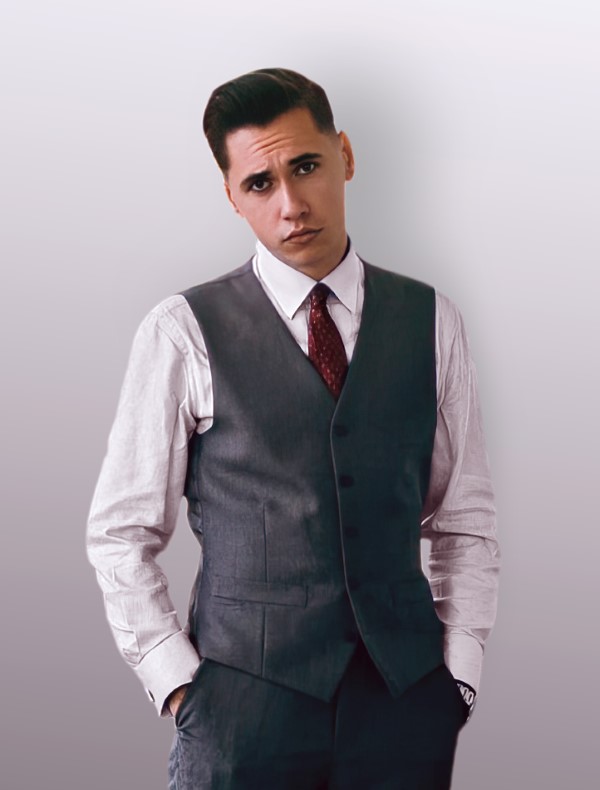Special Issue - Navigating Mobility Challenges: Lessons from an MSCA4Ukraine Fellow
Newsletter
One Ukrainian researcher's story: Academic mobility in the face of adversity. Discover his journey from the midst of war to the pursuit of knowledge. Learn how the academic world came together to offer hope and challenges of personal life and emotional well-being.
The Dystopian Beginning
On the fateful day of 24th February 2022, an unprovoked armed invasion by the Russian Federation into Ukraine shook the world. According to the United Nations, this conflict forced over 5.5 million Ukrainians to flee their homes as refugees (UNHCR, 2023). Among these refugees were numerous Ukrainian scholars and researchers. The impact of the Russian invasion extended beyond human tragedy, affecting the academic and research landscape. Some universities were damaged or destroyed (Dim, 2022), also the funding was redirected to support the military (Smagina, 2023). This situation left many Ukrainian researchers with a pressing question: how to continue their academic pursuits in the face of such adversity (Halavka, 2022)? This story concerns resilience, adaptation, and seeking knowledge amid crisis.

Bionote:
Artem Nazarko is a Marie Skłodowska-Curie Doctoral Fellow at the Faculty of Law, University of Bergen. He is working in international criminal and humanitarian law, focusing on the prosecution of international and domestic war crimes under universal jurisdiction and the right to a fair trial. Artem holds masters degrees in international law from the National University Odessa Law Academy and in economics from Admiral Makarov National University of Shipbuilding.
The Plight of Ukrainian Scholars
I am Artem Nazarko, a Ukrainian lawyer and a doctoral candidate in Law. Before the war in 2021, I had already embarked on my doctoral journey. However, after 24 February 2022, my family and I were compelled to leave our homeland, casting a shadow of uncertainty over my academic endeavors. The question that loomed significantly was how to resume my research.
International Response: A Beacon of Hope
The response from European universities and research centres to the Ukrainian crisis was both swift and heartening. They offered a lifeline to displaced Ukrainian scholars, providing opportunities for work and financial support. One of the most significant initiatives was ‘Science for Ukraine’, where various organisations could assist Ukrainian researchers. In 2022, I worked as a visiting researcher at Palacký University Olomouc (Czech Republic), the University of Vienna (Austria), and London South Bank University (United Kingdom). My journey was far from linear as I explored multiple institutions to pursue my research.
The European Commission's MSCA4Ukraine
To support fleeing researchers, the European Commission launched the MSCA4Ukraine initiative in October 2022 (SAR Europe, 2022). It marked the first specialised scholarship program of the European Union for researchers from vulnerable groups, currently supporting 125 scholars and doctoral candidates through scholarships in European universities. Fortunately, I secured a two-year MSCA4Ukraine grant and embarked on my journey to the University of Bergen in Norway. I have been diligently working on my project, 'Issues of Domestic Prosecution of War Crimes in Ukraine' (Nazarko, 2023). In a recent webinar, I shared my relatively fresh experience as an MSCA4Ukraine fellow (European University Association, 2023).
The Challenge of Balancing Work and Life
One of the most significant challenges displaced scholars face is work-life balance, especially frequent relocations. This aspect of academic mobility can profoundly impact personal life and emotional well-being.
First, there is the strain of separation. The necessity of mobility often means that scholars must leave their families and support systems behind. This separation can be emotionally challenging, especially during turmoil and uncertainty. Scholars like myself must cope with the emotional toll of being away from loved ones.Second, there is a challenge of the work-Life balance. Maintaining work-life balance becomes a complex juggling act for displaced scholars. Research demands and the need to adapt to new environments, languages, and cultures can make finding time for personal life and self-care challenging. Third, there is a psychological resilience. Long-distance commuting and frequent relocations can test one's psychological resilience. Scholars must rapidly adapt to different academic and cultural contexts, which can be emotionally taxing. Coping with change and uncertainty requires a robust mental and emotional toolkit.
Forging Ahead
My journey has been a rollercoaster of challenges, discoveries, and adaptation. The support from European academic communities and the opportunities provided by initiatives like MSCA4Ukraine have been a lifeline for displaced Ukrainian scholars. The lessons learned from navigating mobility challenges can inspire and guide researchers facing adversity in an increasingly interconnected world.
As Ukrainian scholars, we remain dedicated to advancing our research, building bridges between cultures, and contributing to the global academic community, even in the most challenging circumstances.
This project has received funding through the MSCA4Ukraine project, which is funded by the European Union. Views and opinions expressed are however those of the author(s) only and do not necessarily reflect those of the European Union, the European Research Executive Agency or the MSCA4Ukraine Consortium. Neither the European Union nor the European Research Executive Agency, nor the MSCA4Ukraine Consortium as a whole nor any individual member institutions of the MSCA4Ukraine Consortium can be held responsible for them.
Artem Nazarko
MSCA4Ukraine Doctoral Fellow
University of Bergen
orcidartem.nazarko@uib.no

References
UNHCR. (2023). Ukraine refugee situation. Operational Data Portal. Retrieved December 4, 2023, from https://data.unhcr.org/en/situations/ukraine#_ga=2.125435210.1171454164.1680007933-2051047251.1651146256
Dim, N. (2022, August 17). Russian missiles destroyed another university in Mykolaiv. Novynarnia. https://novynarnia.com/2022/08/17/u-mykolayevi-rosijski-rakety-zrujnuvaly-shhe-odyn-universytet/
Smagina, A. (2023, April 25). The future of Ukrainian science: how is it supported during the war?. Rubrika. https://rubryka.com/article/science-support-in-ukraine/
Halavka, Yu. (2022, July 31). What do Ukrainian scientists need in times of war and what can they give to the country?. ZN.UA. https://zn.ua/ukr/science/choho-potrebujut-ukrajinski-naukovtsi-v-chasi-vijni-ta-shcho-voni-mozhut-dati-krajini.html
SAR Europe. (2022). MSCA4Ukraine. SAR Europe - the European Office of the Global Scholars at Risk Network. https://sareurope.eu/msca4ukraine/
Nazarko, A. (2023). Issues of domestic prosecution of war crimes in Ukraine. Universitetet I Bergen. https://www.uib.no/jur/163934/issues-domestic-prosecution-war-crimes-ukraine
European University Association. (2023). Strengthening the Ukrainian higher education and research sector: the role of displaced Ukrainian researchers. https://eua.eu/events/283-strengthening-the-ukrainian-research-and-innovation-sector-the-role-of-european-and-ukrainian-inter-institutional-collaboration.html